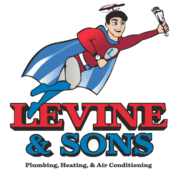Did you know that one of the most common causes of property damage is burst pipes when temperatures dip below freezing? According to the Insurance Institute for Business and Home Safety, frozen pipes can easily cost a homeowner $5,000 or more and let’s face it, most of us have better things to spend $5,000 on.
What Causes Frozen Pipes?
Contrary to popular belief it is not the freezing of the water that causes the pipe to break, but rather the expansion of ice inside the pipe causes water pressure to increase between the ice blockage and a closed faucet. As we see the thermometer drop, the risk of frozen pipes only begins to rise. However, the pipes that run water to your sink or shower are not at the same risk as say a pipe that runs to your hose. That water is usually standing still, and it is just as likely to freeze as water in a calm lake or river. So you need to take extra care of the ‘freezing areas’ listed below and be sure to follow our insulation tips!
Freezing Areas
- Exposed pipes in basement, garage or crawl space.
- Outdoor plumbing (hoses, pools etc.)
- Exterior Pipes
Since water has to freeze for ice blockages to occur, we recommend:
1) Insulating all exposed piping on the outside walls of your home.
2) Sealing any penetrations that allow cold air to enter your home. Best areas to look at are where lawn faucets exit your home. And where electrical and cable TV service enters your home.
3) Keeping cabinet doors open to allow warm air to circulate. In kitchens or bathroom that have sinks and faucets along the outside wall it is important to allow warm house air to get into these closed spaces during cold spells. Often times this can be the difference!
4) Letting the water drip. You will waste some water, so only at risk piping should be left with the water dripping. A slight drip is all you need. If the dripping stops, the pipe may be frozen. Leave the faucet open. An open faucet will provide the needed pressure relief!.
5) If you have pipes that freeze every year, and you have tried the easy fixes (insulation, etc.) we recommend you have a licensed Plumber reroute the water piping to a better conditioned area.
Additional Preventative Measures:
- Don’t Turn Off The Heat: sure, you can lower your thermostat a few degrees here and there to save some money while you’re not home, but DO NOT turn the heat completely off. We recommend keeping the thermostat set to a minimum temperature of 60°F throughout the entire winter.
- Keep Garage Doors Closed: there are water supply lines running through lots of garages and we all know how cold the garage can get. If you have pipes running through the garage, make sure they are insulated and always remember to close the garage door when you enter or exit the house.
- Don’t Close Interior Doors: not only will this help maintain a comfortable temperature throughout the entire house, it can help make sure interior pipes are receiving heat, too. It’s especially important to leave cabinet doors open if there are pipes located inside (think underneath the kitchen and bathroom sinks).
For any of your plumbing problems or preventative maintenance needs, call Levine & Sons today. We’ll roll out our Red Carpet service for you. Remember, when you call Levine & Sons, we get the job done right the first time.
